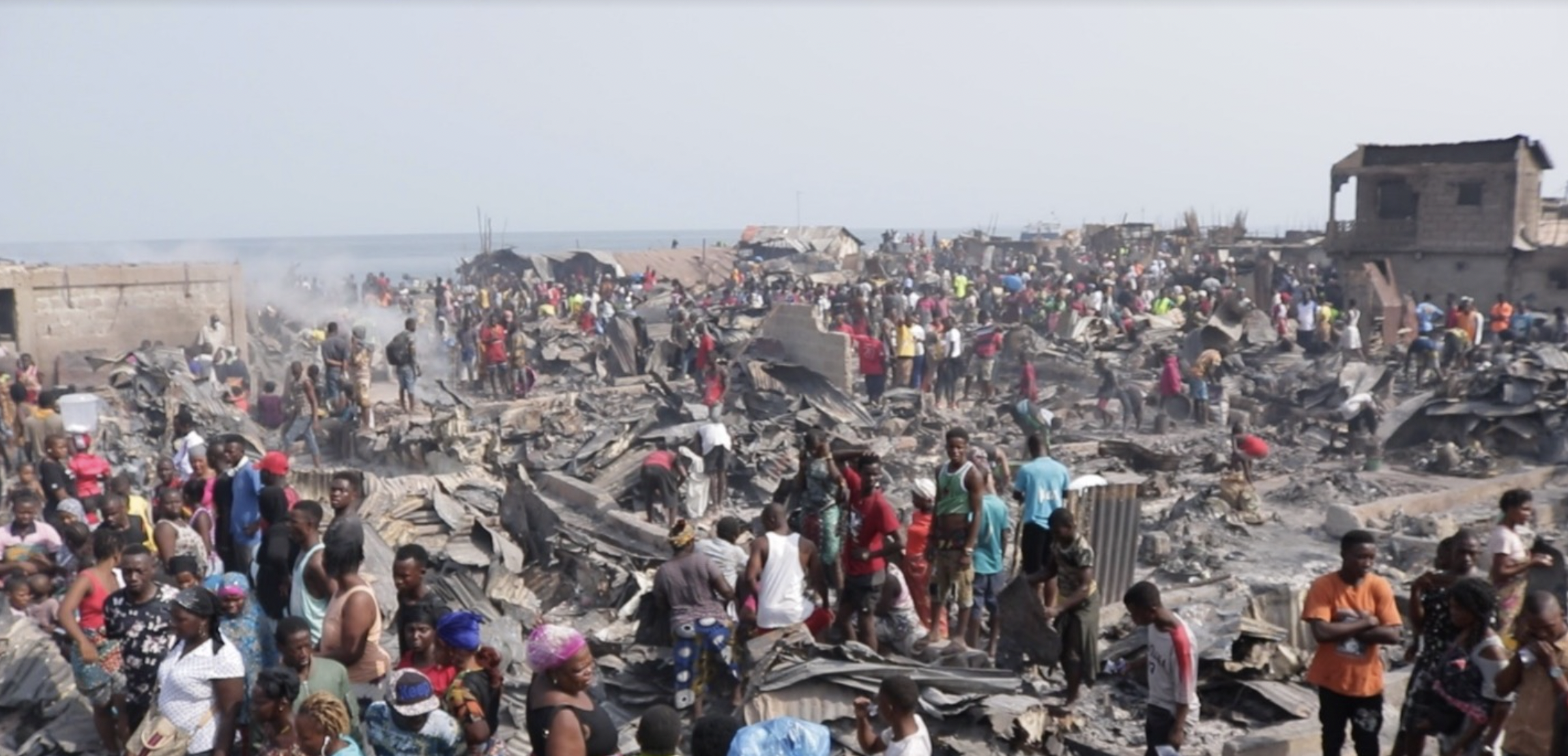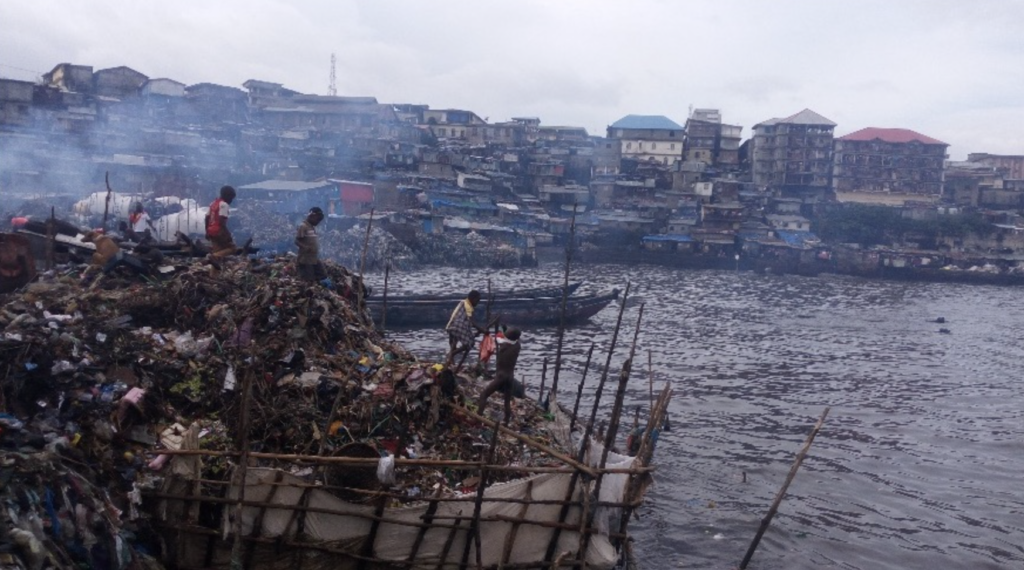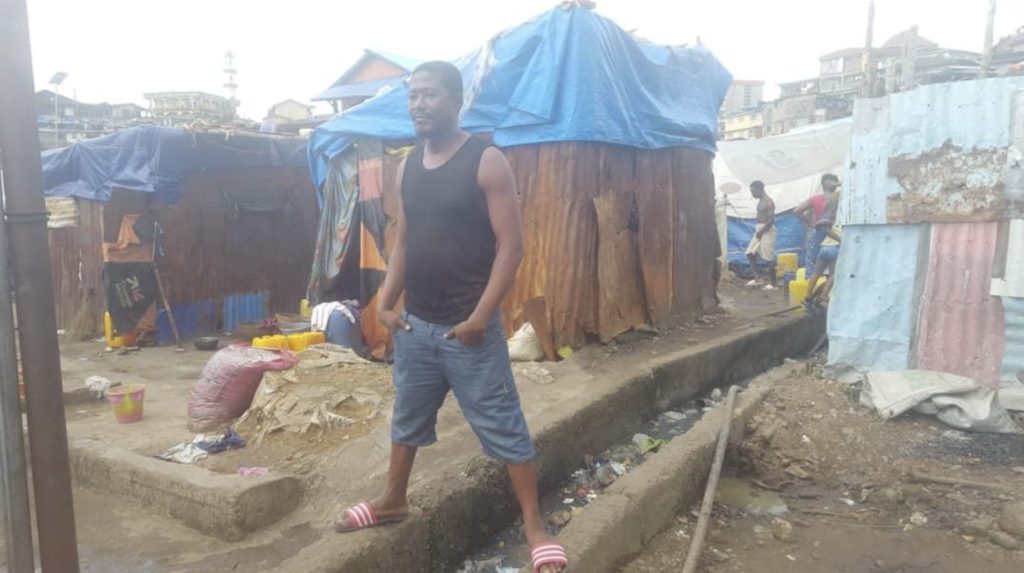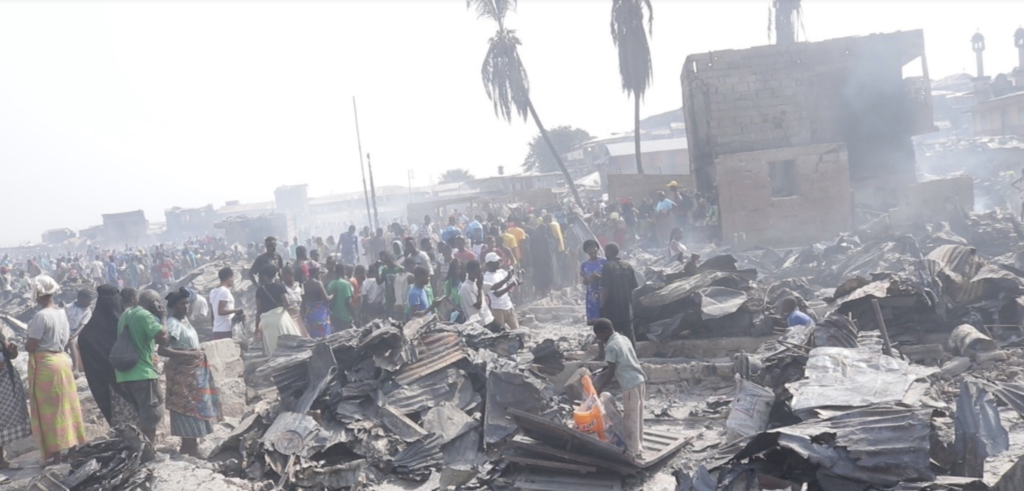FIRE IN SUSAN’S BAY
by CODOHSAPA & FEDURP

On 24th March 2021, a massive fire outbreak swept through the Susan’s Bay community. It burned hundreds of houses and infrastructure and left thousands of residents homeless. To better understand why the fire took place and how it impacted the community, the project interviewed community members.
Fire such as the one in 2021 is common at the peak of dry seasons in Freetown. These fire outbreaks are consistent seasonal events. Many residents in Susan’s Bay own informal businesses, and are involved in small-scale trading and fishing. When fire takes place, loss of income puts additional strain on residents and their families.
“I am really worried about my children’s future and I hope things get better soon.” One of the residents of Susan’s Bay, Kadiatu Conteh, is a widow with 7 children. As a petty trader, she hustles for fish, fruits and other commodities brought to the wharf by fishermen, in order to support her family. As a single mother, Conteh was devastated by the destruction caused by the 2021 fire in Susan’s Bay. Lost everything they had, Conteh’s children had to drop out of school since Conteh could not afford to purchase new uniforms.
Living condition Susan’s Bay
“Susan’s Bay also lacks adequate WASH and other basic life amenities. It also has an inconvenient road network. As a coastal community, it does not only face a great risk of fire during dry seasons but also shoulders the risk of flooding during rainy seasons. All year-round, the convoluted roads make it difficult for firefighters or help to arrive in cases of emergency. Thus, to avoid or adapt to challenges posed by fire or flooding, residents often relocate to other communities nearby temporarily.

Struggling to cope with the new reality
To support residents in Susan’s Bay, the local government along with donors and NGOs provided the community with school materials, clean water, and a temporary shelter in the aftermath of the 2021 fire. The emergency aid represents a step in the right direction, but long-term sustainable development is still in demand. In the age of frequent climate-related disasters, the business has been really tough for Conteh. Goods are expensive and she often cannot sell them at a competitive price at the wharf. Even though school has re-opened for a while, Conteh is still recovering from the loss of income due to the fire, and her children still do not have the necessary school supplies.
Drawing from her lived experience, Conteh hopes that the government can upgrade the housing conditions in Susan’s Bay, so residents can have housing security and subsequent socioeconomic security.
In the aftermath of the 2021 fire in Susan’s Bay, community members rely on informal networks and lessons from lived experiences, such as waste collection and fire safety practices, to protect themselves. To mitigate the negative impacts of the fires on livelihoods in the long term, the local government can learn from community knowledge and experiences to improve life quality.

“My house was the second to catch fire. I am married and have four children. My wife and children are currently living with relatives in different communities. I am squatting with a friend so that I can continue my carpentry work within the community. I lost all my tools in the fire outbreak and currently don’t have the necessary working tools to move forward with my work” (David Conteh, Susan’s Bay community)

“I lost my Job as a factory worker due to COVID-19 pandemic. I lost all my properties and possessions in the Susan’s Bay fire. My wife and 3 children are living with my elder brother in another community. As a community volunteer, I am trying to give my best for my community to recover from the shock. Irrespective of that, I encounter stigma and pressure from community members, on a daily basis. The government intends to upgrade the community and has stopped people demarcating boundaries and constructing new houses. As a volunteer supporting the government on the relocation process, people have negative perceptions about me. Also, the upgrading process promised by government and NGOs has taken some time to materialize prompting distrust by some residents. This is primarily because we have been homeless for 6 months now, and are anxiously waiting for the upgrading and relocation process to commence.” (Alhassan Kamara, Susan’s Bay community)